During Christian Porter’s press conference which turned into a blood sport yesterday, two journalists in particular insisted that the Attorney-General step aside and subject himself to an “independent inquiry”. As the first law officer of the nation, he had to be “beyond allegations”. It did not matter that the New South Wales Police had ended their investigation, concluding there was insufficient evidence to pursue the matter further, since Mr Porter had to satisfy “the court of public opinion”.
Upon hearing those words my mind flew back to the first trial I witnessed as an articled clerk (known as “graduate lawyer” these days), a Supreme Court trial in Bunbury, Western Australia. The trial had received significant publicity, and being held in a country town only exacerbated the situation. Once the jury was empanelled, the trial judge made a point of telling its members that they must not be swayed by the “court of public opinion”, since there can be no such thing.
This “court of public opinion”, the judge went on (I paraphrase) is anathema to the idea underpinning our justice system: that of a fair trial. It was also nonsense because it was based on opinion (“We think he or she is guilty, or looks guilty, so it must be true”), and the role of a court of law is to ascertain the facts by applying the rules of procedural fairness and, in a criminal context, guilt must be determined beyond reasonable doubt. How many people thought that Lindy Chamberlain was guilty? Acceding to the “court of public opinion” means, as Margaret Thatcher once said, allowing the rule of the mob to replace the rule of law.
To the incessant haranguing by the media pack, the Attorney-General emphatically denied that the alleged sexual assault took place. He also replied that no-one is beyond allegations, adding that a person’s career, livelihood and reputation should not be destroyed by pure allegations. He would not be standing aside since he is innocent, and furthermore, to do so would mean that there would no longer be a rule of law to defend. Further, it has emerged that the complainant’s friends and family doubted the veracity of her allegations. In these circumstances, the simple fact of the matter is that, if the rule of law is applied, the only possible outcome is that Christian Porter is declared innocent. But there are many in the media who are not interested in the rule of law, only in “the court of public opinion”, which, as the judge in the trial all those years ago pointed out, is a concept fraught with danger. Christine Holgate would no doubt agree.
At this point I must make a “declaration of interest”. Christian Porter was a colleague of mine at Curtin University Law School for about a year before he entered the Federal Parliament. His former partner is still a colleague. However, that has not stopped me from drawing attention to Mr Porter’s less than impressive record as Attorney-General. Indeed, in these pages, I have criticised the Federal Government’s feckless withdrawal from the High Court action against state border closures and its failure to live up to its promise to the “quiet Australians” at the last election to ensure religious freedom is protected. On this latter point I have also written in another publication.
Naturally, I do not wish the Attorney-General any ill-will. Like any fair-minded person, I sincerely hope he emerges from this personal crisis and returns to make a contribution to public life. And, when you compare the treatment meted out to him yesterday with that given to then opposition leader Bill Shorten in 2014, the double standards are plain for any reasonable person to see.
However, when the Attorney-General talks about upholding the rule of law, he must ask himself about the role he and his Liberal colleagues have played in it being replaced by the rule of the mob. James Allan has written numerous times about this matter in this publication, as recently as yesterday. The Coalition has been in government for seven and a half years, yet it has done nothing about taking on academic freedom and cancel culture in universities – just ask Peter Ridd, among others. Critically, its appointments to the High Court have resulted in disgraceful decisions such as those in the Love case to engage in some sort of race-based identity politics, and, more recently, the High Court has legitimised the trashing of the Constitution by imbecilic state premiers over a virus that has an infection mortality rate of 0.1% for those under 70 years of age.
The Prime Minister has effectively endorsed this mob rule. Instead of dealing with SBS and the ABC, he gives them more money to perpetuate their insidious bile and gutter journalism. In fact, in an interview with Neil Mitchell on 3AW recently, Morrison sniggered about wokeness, saying that he is ‘focussed on jobs’. What he conveniently forgets is that wokeness actually costs jobs. It cost Peter Ridd his job, Nicolle Flint hers and, even though it should not, it may well cost the Attorney-General his. If he loses a trusted Cabinet Minister, maybe the Prime Minister will realise what upholding the rule of law actually means. Somehow, I doubt it.
Rocco Loiacono is senior lecturer, Curtin University Law School.
Got something to add? Join the discussion and comment below.
Get 10 issues for just $10
Subscribe to The Spectator Australia today for the next 10 magazine issues, plus full online access, for just $10.

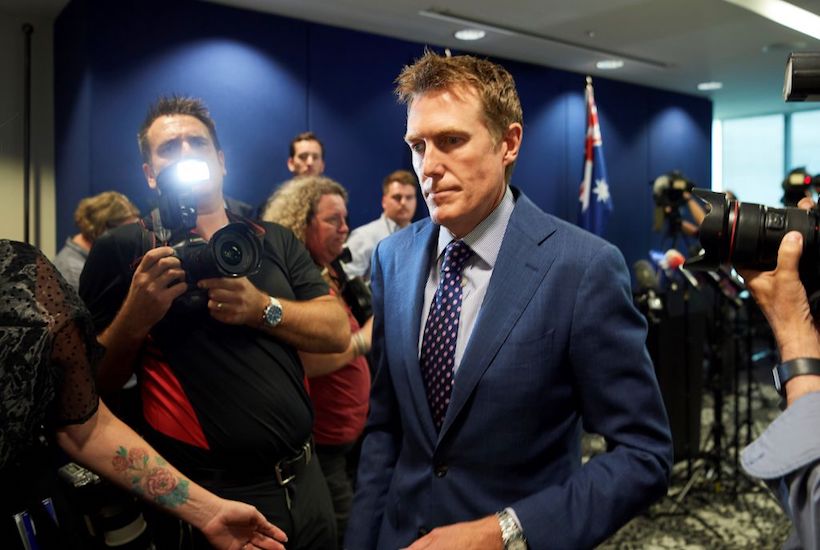
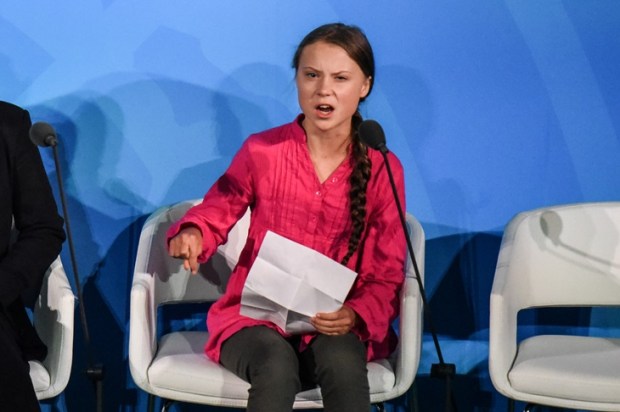

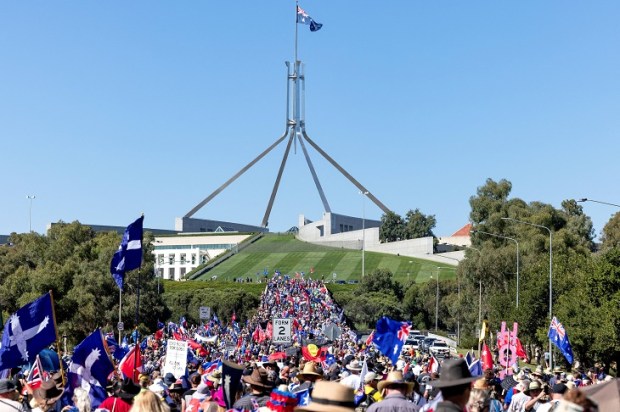
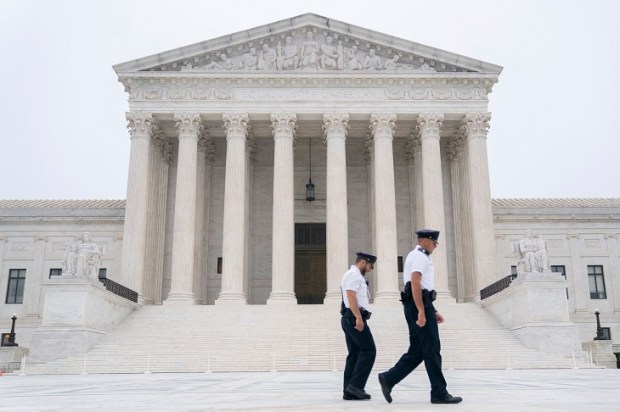
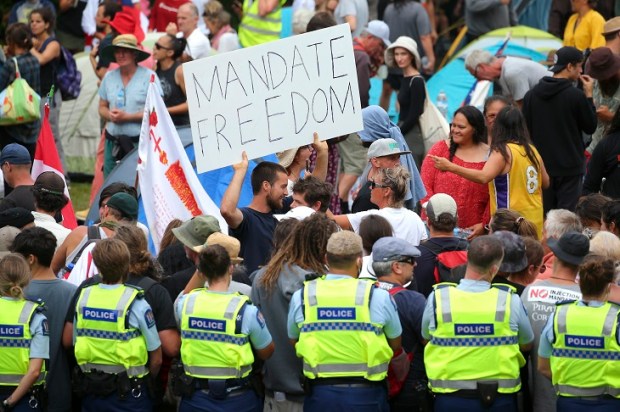
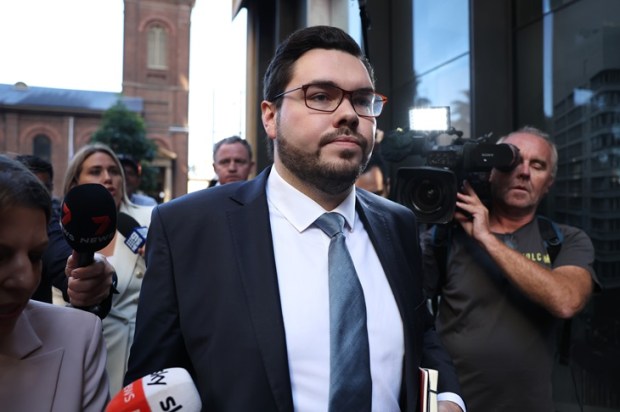


















Comments
Don't miss out
Join the conversation with other Spectator Australia readers. Subscribe to leave a comment.
SUBSCRIBEAlready a subscriber? Log in